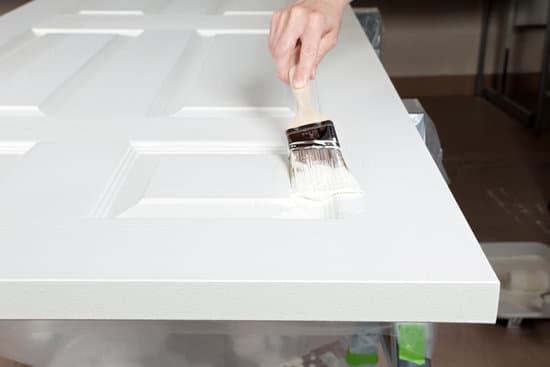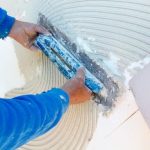Are you a contractor looking to expand your business? Or perhaps a homeowner seeking reputable professionals to handle your home improvement projects? In either case, obtaining a home improvement license is crucial. A home improvement license not only provides credibility and trust for contractors but also protects homeowners from potential liabilities. This article will guide you through the process of obtaining a home improvement license, outlining its importance and the benefits it can bring to both contractors and homeowners.
One of the first steps in obtaining a home improvement license is to understand the specific requirements and qualifications needed. This includes education, experience, and any necessary exams or certifications. Each state may have its own set of regulations, making it essential for contractors to familiarize themselves with the specific requirements in their state. Additionally, researching state regulations will help in understanding any necessary paperwork or fees that are required for the license application process.
Preparing for the application process is another crucial step in obtaining a home improvement license. From gathering necessary documentation to completing required forms, being organized and well-prepared will streamline the process. It’s important for contractors to study for any required exams as well, utilizing resources such as practice tests and study guides.
Navigating the application process itself can be complex, which is why this article offers guidance on how to submit an initial application and navigate any follow-up steps that may be required. With proper preparation and knowledge of the process, applicants can increase their chances of success in obtaining a home improvement license.
Understanding the Requirements
To obtain a home improvement license, individuals must meet specific requirements and qualifications. Understanding these requirements is crucial in the process of becoming a licensed contractor. The following are the key components that aspiring home improvement contractors need to consider in order to qualify for a home improvement license:
1. Education: Many states require individuals to have completed a certain level of education in order to obtain a home improvement license. This may include a high school diploma or GED, as well as completion of specific courses related to the home improvement industry. Some states also offer vocational programs or apprenticeships that can fulfill the educational requirement.
2. Experience: In addition to education, most states also require individuals to have a certain amount of experience working in the home improvement field. This could involve working as an apprentice under a licensed contractor, gaining hands-on experience in various aspects of home improvement, such as plumbing, electrical work, carpentry, or general construction.
3. Necessary Exams or Certifications: Depending on the state, individuals may be required to pass specific exams or obtain certifications related to their trade in order to qualify for a home improvement license. This could include passing a written exam on building codes and regulations, safety procedures, and business practices.
Understanding these specific requirements is essential for anyone looking to become a licensed home improvement contractor. By ensuring they meet these qualifications, individuals can take the necessary steps toward obtaining their license and pursuing a successful career in the industry.
Researching State Regulations
When pursuing a home improvement license, it is crucial to familiarize oneself with the specific state regulations and licensing requirements. Each state has its own set of rules and criteria that must be met in order to obtain a home improvement license. By conducting thorough research and understanding these regulations, individuals can ensure they are on the right track to meeting the necessary qualifications.
Navigating State-Specific Requirements
Before applying for a home improvement license, it is essential to research and understand the specific requirements set forth by the state in which you plan to work. This may include obtaining information on education and experience prerequisites, as well as any necessary exams or certifications that must be completed. By closely examining these requirements, individuals can proactively prepare themselves for the application process.
Familiarizing Oneself With Paperwork and Fees
In addition to understanding the qualifications needed for a home improvement license, it is important to be aware of any necessary paperwork or fees associated with the application process. This may include submitting documentation such as proof of insurance, bonding, or financial statements. Furthermore, there may be specific fees that must be paid when submitting an application or renewing a license. By thoroughly researching these administrative aspects, individuals can avoid any potential delays in their licensing journey.
Seeking Professional Guidance
Navigating state regulations and licensing requirements can be complex and overwhelming at times. To alleviate any confusion or uncertainty, individuals seeking a home improvement license should consider seeking professional guidance from industry experts or legal counsel who specialize in contractor licensing. These professionals can provide invaluable insights and advice on how to effectively navigate through state-specific regulations and ensure all necessary steps are fulfilled for obtaining a home improvement license.
Preparing for the Application Process
Obtaining a home improvement license is an important step for contractors looking to advance their careers and offer their services to homeowners. Before beginning the application process, it’s crucial to understand the specific requirements and qualifications needed to obtain a home improvement license. This often includes meeting education and experience requirements, as well as passing any necessary exams or obtaining certifications.
One of the first steps in preparing for the application process is to familiarize yourself with your state’s specific regulations and licensing requirements. Each state may have different rules and procedures for obtaining a home improvement license, so it’s essential to research and understand these regulations thoroughly. This may also include gathering any necessary paperwork and being prepared to pay any required fees associated with the application.
Once you have a clear understanding of the requirements and regulations, it’s time to gather all necessary documentation and complete any required forms. This may include proof of education or experience, letters of recommendation, financial statements, and more. It’s important to carefully review all application materials and ensure that everything is filled out accurately and completely before submission.
| State | Licensing Fees |
|---|---|
| California | $300 |
| Texas | $180 |
| New York | $390 |
Studying for the Exam
Practice tests are especially valuable as they allow you to assess your knowledge and identify areas where further study may be needed. Some states may even offer official practice tests on their licensing board website, so it’s important to check there first. Additionally, study guides specifically tailored to the content of the home improvement exam can provide targeted review of relevant material.
Another effective strategy for studying for the exam is to create a study schedule and stick to it. Organizing your study time can help ensure that you cover all necessary material and are adequately prepared when exam day arrives.
When studying for any required exams, it’s important not to underestimate the amount of time and effort that may be needed. Home improvement licensing exams often cover a wide range of topics, including building codes, safety regulations, contract laws, and more. Therefore, approaching your studies with dedication and thoroughness is essential in order to pass the exam successfully.
| Strategy | Resources |
|---|---|
| Utilize practice tests | Official practice tests on state licensing board websites |
| Use study guides | Study guides tailored to home improvement exam content |
| Create a study schedule | Organize study time effectively |
Navigating the Application Process
After understanding the requirements and researching state regulations, the next step in obtaining a home improvement license is navigating the application process. This can often be an intimidating and confusing step for many contractors, but with proper guidance, it can be a smooth experience. Here is a step-by-step guide to help you through the process:
1. Complete the initial application: The first step in obtaining a home improvement license is completing the initial application. This may involve providing personal information, work history, and proof of education or certifications. Make sure to fill out all necessary forms accurately and completely to avoid any delays in the process.
2. Gather necessary documentation: Depending on your state regulations, you may need to provide additional documentation such as references, background checks, or financial statements. Be sure to gather all required documents before submitting your application to streamline the process.
3. Pay any required fees: In some states, there may be fees associated with applying for a home improvement license. Research the specific fees for your state and ensure that they are paid in full at the time of application submission.
4. Follow-up steps: Once your initial application is submitted, there may be follow-up steps required such as an in-person interview or additional documentation requests. Be prepared to respond promptly to any requests and provide any necessary information to move forward with your application.
Successfully navigating the application process is a crucial step towards obtaining a home improvement license. By following these steps and being diligent in your preparation, you can increase your chances of success in obtaining your license.
Tips for Success
When pursuing a home improvement license, it is crucial to take proactive steps to increase the likelihood of success in obtaining the license. One valuable strategy for achieving this goal is to network within the industry, connecting with other professionals and establishing relationships that can provide valuable insights and support.
Joining professional organizations or attending industry events can offer opportunities to network and gain helpful advice from experienced individuals who have already gone through the process of obtaining a home improvement license.
Seeking mentorship from established contractors or individuals in the home improvement industry can also be immensely beneficial when navigating the process of obtaining a home improvement license. A mentor can provide guidance, share their own experiences, and offer invaluable advice on how to successfully obtain a license. By learning from someone who has already achieved what you are striving for, you can gain a deeper understanding of the requirements and best practices for obtaining a home improvement license.
Maintaining a strong work ethic throughout the entire process of pursuing a home improvement license is essential for success. Demonstrating dedication, professionalism, and responsibility in your work can positively impact your application for a home improvement license.
This commitment to excellence not only benefits your chances of obtaining the license but also contributes to building a solid reputation in the industry. Adhering to high standards in your work showcases your reliability and competence as a contractor, which can ultimately enhance your prospects of securing a home improvement license.
Continuing Education and Renewal
In conclusion, obtaining a home improvement license is a crucial step for contractors looking to operate legally and successfully. It not only provides them with the necessary qualifications and skills but also offers homeowners the assurance of working with licensed professionals. Understanding the requirements, researching state regulations, and preparing for the application process are all important steps to take when pursuing a home improvement license.
After obtaining the license, it is important for home improvement contractors to prioritize continuing education. This can include staying updated on industry trends, learning about new techniques and materials, and attending relevant workshops or seminars. Continuing education not only keeps contractors informed about the latest developments in their field but also shows their commitment to maintaining high standards of workmanship.
Finally, it’s essential for home improvement contractors to understand the steps for license renewal. This typically involves completing a certain number of continuing education hours within a specific time frame and paying any required renewal fees.
By staying compliant with renewal requirements, contractors can continue to operate legally and uphold their professional reputation. In essence, obtaining a home improvement license is just the beginning-continuing education and ensuring timely renewal are equally important for long-term success in this field.
Frequently Asked Questions
How Do I Get a Home Improvement Contractor’s License in NY?
To obtain a Home Improvement Contractor’s License in New York, individuals must submit an application to the Department of Consumer Affairs, attend a 60-hour training course, pass a background check, and provide proof of insurance.
How Do I Get My MHIC License in Maryland?
Getting a MHIC License in Maryland requires applicants to complete an application form, provide proof of experience or education in home improvement work, pass the required examination, obtain necessary insurance and bonding, and pay the licensing fee.
What Is the Law for Home Improvement in NY?
The law for home improvement in New York requires contractors to have a license for projects over $200. They must also provide a written contract for all jobs over $500 and follow specific guidelines when it comes to payments and project completion timelines.

I’m thrilled to have you here as a part of the Remodeling Top community. This is where my journey as an architect and remodeling enthusiast intersects with your passion for transforming houses into dream homes.





